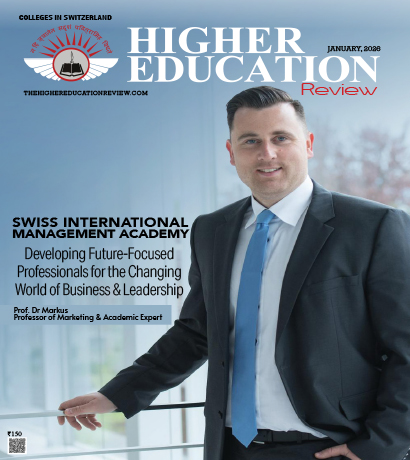IGNOU Launches First-Ever Master’s Programme in Home Science

- IGNOU introduces its first MSc in Home Science via ODL mode.
- The course blends theory and practice in community development.
- Graduates can pursue careers in NGOs, CSR, research, and more.
The Indira Gandhi National Open University has launched its first master’s program in Home Science – MSc in Community Development and Extension Management.
The course aims to meet the educational goals of Home Science graduates and those from other fields seeking to become development practitioners and execute community development initiatives focused on livelihoods, skill development, and related objectives.
The two-year program is conducted by the School of Continuing Education in English language through an Open Distance Learning format.
In this programme, students will explore the intricacies of extension, development communication, social and behavioral change, advocacy, resource mobilisation, participatory media, gender mainstreaming, maternal and child health, community-based research, and interdisciplinary fields of Home Science, as highlighted in the press release.
Individuals applying for this program can be graduates from Home Science / Community Sciences, Social Sciences, Behavioral Sciences, Sciences, or other fields, who aspire to build careers in the development sector. Learners who have a science background can benefit from this programme as it aids them in applying scientific knowledge for community development.
In the first-year curriculum, students will acquire both foundational and practical knowledge in development studies and community outreach. The courses offered are Fundamentals of Development and Extension (MHC-001), a theoretical paper worth 6 credits, and Community Organisation and Community Development (MHC-002), which is another theoretical course carrying 4 credits.
The program also includes Media in Development Communication (MDC-003) and Development: Information and Communication Technologies (MDC-005), with both providing 6 credits as theoretical courses.
Students will also take Programme Planning and Evaluation (MHC-003) and Participatory Community Development (MHC-004), two theoretical courses each worth 4 credits. The curriculum features a practical element named Field Project in Home Science (MHCP-001), which is worth 4 credits.
Students must select either Gender or Development: Concept, Approaches and Strategies (MGS-001) or Rural Development Programmes (MRD-202), as both are theoretical courses worth 6 credits. This curriculum framework guarantees a harmonious mix of theoretical knowledge and practical application, crucial for practitioners in development and community outreach.
The second-year curriculum in Home Science, focusing on Community Development and Extension Management, presents a thorough array of theoretical and project-oriented courses designed to provide students with enhanced knowledge and hands-on skills.
The curriculum features Community Sciences and Community Development: Emerging Issues (MHC-005), a theoretical course worth 8 credits, along with Training and Development (MDV-110), a theoretical class totaling 6 credits. Students study Management of Maternal and Child Health (MHC-006) for 4 credits and Social and Behaviour Change (MHC-007), which is worth 6 credits.
Also Read: Top 10 Education Courses & Career Options after Class 12th in India
Additionally, the program features Research Methods in Community Development and Extension Management (MHC-008) worth 4 credits, along with a Research Project in Home Science (MHCP-002), which is a project-oriented course totaling 6 credits. Students can select as an elective either Fundamentals of CSR (MEDS-051) or Rural Development: Issues and Concerns (MHC-009), with both theory courses providing 6 credits each.
All classes, aside from the elective, are mandatory. This programme requires a total of 80 credits, providing a comprehensive and well-rounded educational experience for students aiming for careers in community development and extension management.
The employment potential of this programme covers Programme/Project officers in Government, Intergovernmental, Multilateral, and International Organizations across areas such as social welfare, rural development, health services, and agriculture, as well as NGOs, CSR Foundations, Corporations, and Social Enterprises; Academics, Researchers, PGTs in schools, and officials in skill development.

